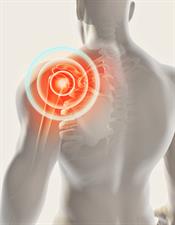STAFF REPORTS
 ROCHESTER, N.Y. — A new study out today in the Journal of Neurology finds that pregabalin is not effective in controlling the chronic pain that sometimes develops following traumatic nerve injury. The results of the international study, which was driven by an effort to identify effective non-opioid pain medications, did show potential in relieving in pain that sometimes lingers after surgery.
ROCHESTER, N.Y. — A new study out today in the Journal of Neurology finds that pregabalin is not effective in controlling the chronic pain that sometimes develops following traumatic nerve injury. The results of the international study, which was driven by an effort to identify effective non-opioid pain medications, did show potential in relieving in pain that sometimes lingers after surgery.
“The unrelenting burning or stabbing symptoms due to nerve trauma are a leading reason why people seek treatment for chronic pain after a fall, car accident, or surgery,” said John Markman, M.D., director of the Translational Pain Research Program in the University of Rochester Department of Neurosurgery and lead author of the study. “While these finding show that pregabalin is not effective in controlling the long-term pain for traumatic injury, it may provide relief for patients experience post-surgical pain.”
Pregabalin, which is marketed by Pfizer under the name Lyrica, is approved to treat chronic pain associated with shingles, spinal cord injury, fibromyalgia, and diabetic peripheral neuropathy. However, it is also commonly prescribed as an “off label” treatment for chronic nerve injury syndromes that occur after motor vehicle accidents, falls, sports injuries, knee or hip replacement and surgeries such as hernia repair or mastectomy.
A previous eight-week study had shown that pregabalin reduced pain intensity better than placebo in these chronic, post-traumatic pain syndromes. These results led many doctors to prescribe this medication for long-term pain that does not resolve as expected.
Chronic postsurgical pain syndromes occur in approximately one or two out of every 10 surgical patients and the levels rated as intolerable after roughly one or two in every 100 operations. With 55 million surgeries performed in the U.S. every year, severe chronic pain impacts more than a million new people annually. Roughly one third of these patients are believed to have neuropathic pain or ongoing pain related to nerve injury.
These rates vary widely by type of surgery. The risks factors and underlying mechanisms of this type of chronic pain are not well understood, but because the types of symptoms patients describe like “burning”, “unpleasant tingling,” or “numbness” resemble other nerve pain syndromes like shingles pain. As a result, physicians trying to find useful non-opioid pain relievers have often turned to prescribing gabapentin or pregabalin.
The current study was conducted in 101 centers in in North America, Europe, Africa, and Asia and followed 539 individuals for three months. Study participants were randomized into two groups who either prescribed pregabalin or a placebo.
The study found that pregabalin was not effective in controlling pain for individuals with traumatic nerve injury. A retrospective analysis of a subgroup of study of participants, whose nerve pain was attributed to surgery, showed that the drug did provide better pain relief than placebo at 3 months.
“The possibility that there was pain relief for those patients who had a hernia repair, or breast surgery for cancer, or a joint replacement lays the groundwork for future studies in these post-surgical syndromes where there is so much need for non-opioid treatments,” said Markman.
One major challenge is that different biological changes in the nerves and other tissues that cause pain to persist after healing from trauma vary from one patient to the next. Currently, there is no diagnostic method that allows doctors to readily identify the patients whose pain will respond to a particular type of pain treatment.
Despite employing new strategies to reduce placebo effects, the patients receiving placebo also had a steady lowering of their pain over the course of the study. The pattern of these placebo effects in longer studies has proved to be a major challenge to the development of new pain medications.
“Given the rising rates of surgery and shrinking reliance on opioids, it is critical that we understand how to study new drugs that work differently in patients like the ones included in this study,” Markman added.
Additional co-authors of the study include Malca Resnick, Scott Greenberg, Ruoyong Yang, Joseph Scavocne, Ed Whalen, Gabriela Gregorian, Bruce Parsons, and Lloyd Knapp with Pfizer and Nathaniel Katz with Analgesic Solutions. Pfizer funded the trial, and was involved in its design as well as the data collection and analysis. The company also paid for medical writing assistance and editorial support in preparing the article for the journal. Markman has received consulting fees and research funding support from Pfizer.
All WNY is made possible thanks to coffee and sleep deprivation.
We appreciate your readership. We like money, too.
